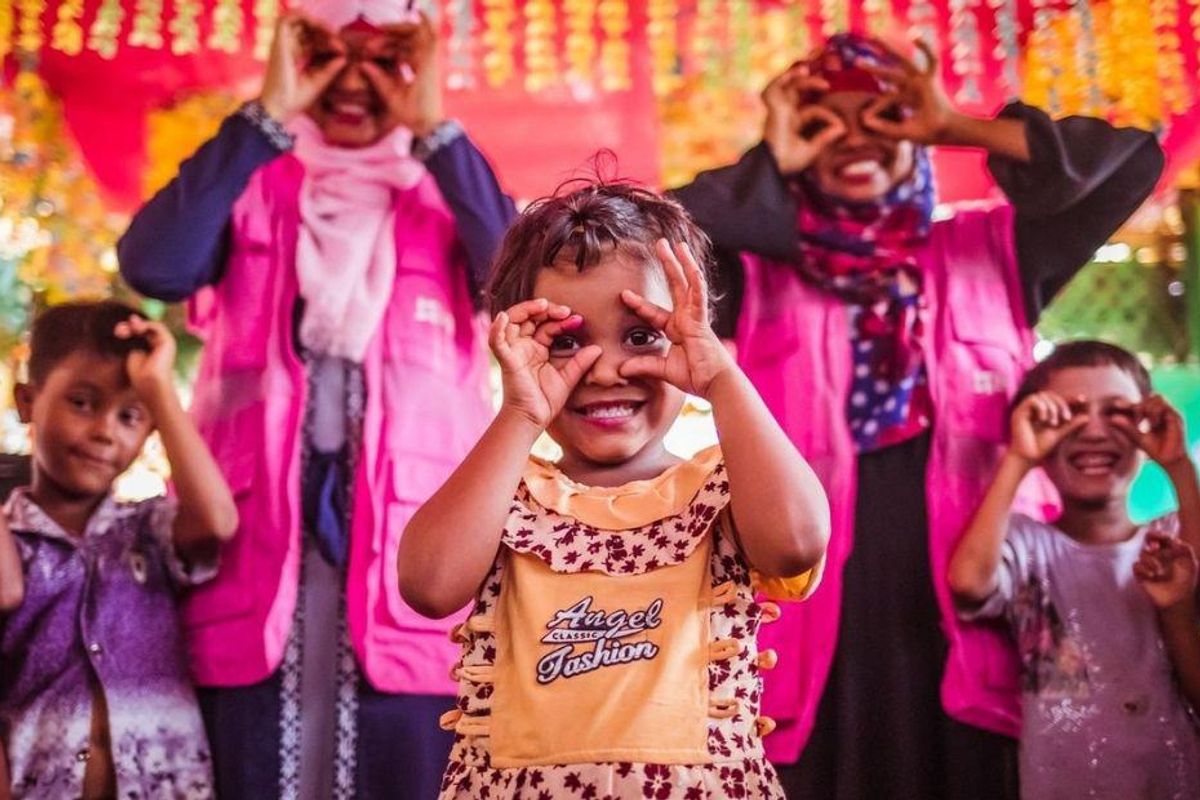
Kids’ play fads come and go, but there are certain classic toys that never get old. Of such timeless toys, the simple LEGO brick stands out as it has spanned multiple generations and is still going strong. In fact, LEGO building sets have only seemed to get better and more popular in recent decades. (Full disclosure: Huge LEGO fans in my household.)
As the Danish company celebrates its 90th year in business, it’s re-upping its dedication to early childhood development. The LEGO Foundation is launching a whopping $143 million grant challenge—its largest public grant ever—to help mitigate issues facing young kids, many of which have been exacerbated by the coronavirus pandemic.
The Build A World of Play Challenge is a global grant competition for organizations around the world that are “exploring evidence-based innovative solutions to the biggest problems” affecting early child development, including “access to quality early childhood education and care, adequate nutrition, eradication of toxic stress in homes and communities, reduction of violence in homes and communities, protection from pollution, and supporting the social and emotional well-being of the whole family.”
The competition is now open, and participants enter by registering first (via this link before April 7, 2022) and then submitting a full application prior to May 17, 2022. Submissions will be evaluated on how impactful, feasible, sustainable and community-oriented their work is. Three winning organizations will receive approximately $30 million and two will receive $15 million. Ten additional finalists will receive approximately $1 million each to “strengthen their proposed plans, start building the team, and skill up to successfully implement their innovation.”
Introducing: the 900 million DKK #BuildaWorldofPlay Challenge. Itu2019s an open call to share impactful solutions that centre on children from birth to six. We encourage organisations around the world to join this challenge. Click here to find out more: http://ow.ly/u4Io50HUkGMu00a0pic.twitter.com/kXJ8sSv8Tp— The LEGO Foundation (@The LEGO Foundation)
1644998433
Thomas Kirk Kristiansen, chair of the board of directors at The LEGO Foundation (and fourth-generation member of the LEGO owner family), emphasized that children have the right to safety, quality education and healthcare, but early childhood development has been grossly underfunded.
“Children are the builders of tomorrow,” he said in a statement. “To build a better world for future generations—focusing on innovation and action—we must work together. If we do not invest in the youngest children in our society, we don’t invest in our collective future.”
The LEGO Foundation CEO, Anne-Birgitte Albrectsen, explained why the organization is focusing so intently on kids from birth to age six:
“We are currently facing the biggest global early childhood emergency that the world has ever seen. The quality of experiences in the first few years of a child’s life is where brain development is in its most adaptive and rapidly developing state. They also provide the foundations for learning, health and behaviour in the long-term – investment in which we know improves educational outcomes, develops holistic skills, and enhances quality of life. Providing whole-child support through early childhood development interventions is one of the most powerful and cost-effective equalizers we have at our disposal. Through the Build A World of Play Challenge, we want to join forces with others to urgently address the biggest challenges societies globally face, with creative, actionable ideas that put children at the centre of global decision making. We must start building a world that puts the youngest in society first: building cities, education systems, healthcare systems and solutions to save our planet, at the forefront. This competition is an opportunity to make a real difference to the lives of the youngest children.”
Kudos to LEGO for putting a flood of resources toward the well-being of the youngest among us. Children truly are our future, and if we neglect their needs and their potential in their earliest years, we are harming not only them but ourselves.
